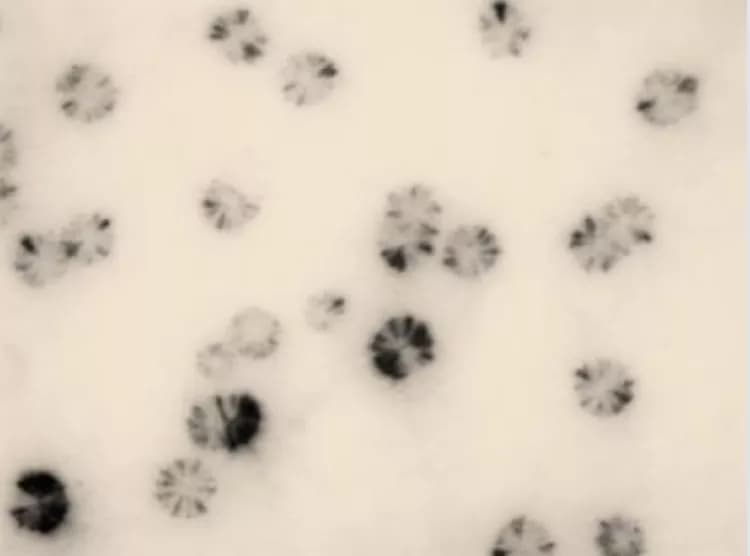
How The Smallest Bacterial Pathogens Outwit Host Immune Defenses By Stealth Mechanisms
Mycoplasmas are very simple bacteria. They have a minimalist genome and no protective cell wall. Nevertheless, they are common and successful pathogens that cause infections in the lungs, joints and udders of animals like cattle or sheep. The bacteria can also cause chronic illnesses in humans. Due to a lack of or insufficient vaccines, these bacteria present a health risk as well as a risk of economic loss for the meat and dairy industry.
One of the most important pathogenic mycoplasma species in sheep and goats, Mycoplasma agalactiae, has been the subject of research at the Institute of Microbiology, formerly the Institute of Bacteriology, Mycology and Hygiene, at Vetmeduni Vienna for many years. By specifically inactivating a certain area in the genome of this pathogen the researchers made an important step forward, especially due to the fact that mycoplasmas are generally difficult to manipulate genetically. They were able to use these so-called knock-out mutants to explore for the first time those mechanisms used by the mycoplasmas to outsmart the immune defences during an infection in a natural host organism. The mycoplasmas were found to be such clever "genomic strategists" that they could even compensate for the artificial gene inactivation.
Surface variation as a strategy against immune response
"We have known for several years that some mycoplasma species possess gene families that produce highly variable proteins for the membrane surface. These proteins compensate for the lack of a cell wall, but they are recognized by the immune system as antigens, thus foreign proteins," explains first author Rohini Chopra-Dewasthaly. The genes are therefore subject to phase variation, which means that they can be spontaneously switched on and off at high frequency and be replaced by other variants. Through this surface variation the mycoplasmas are equipped with a sort of molecular stealth mechanism that can outsmart the immune system.
The researchers from Vetmeduni Vienna identified an important component of this mechanism, an enzyme called recombinase, and were able to deactivate it through genetic modification. "This stopped the phase variation so that the surface of the mycoplasmas could no longer change," says senior author Renate Rosengarten. The laboratory-produced mycoplasmas, called phase-locked mutants, were tested for the first time in vivo, namely in sheep, the natural host. Surprisingly, the mycoplasmas proved to be real survivors once they were back in their natural environment.
Even an artificially inactivated molecular stealth mechanism cannot stop the mycoplasmas' survival abilities
Although the phase-locked mutants should not have been able to escape the immune defences of the infected animals, there were hardly any differences seen compared to the course of the disease with unaltered mycoplasmas. Even without an active recombinase, the mycoplasma mutants demonstrably varied their surface proteins by using a previously unknown alternative mechanism, which could only be discovered and deciphered by the in vivo experiments.
"The research findings regarding the effective infection of a natural host confirm that the switching of its surface protein antigens is absolutely necessary for the survival of Mycoplasma agalactiae during an infection," says Chopra-Dewasthaly. "That this was possible even without the important recombinase shows how cleverly mycoplasmas use their gene repertoire to resist the host's immune defences. This allows them to be quite successful pathogens despite their very small genome."
Rosengarten explains the difference between the laboratory and in vivo experiments by pointing to the different environmental conditions which the mycoplasmas are subjected to: "In the test tube, the mycoplasmas can propagate under ideal conditions and don't have to expect an immune response. This means that there is no immediate need to respond to the inactivation of the phase variation." In an infected host organism, on the other hand, the mycoplasmas as pathogens must become active immediately once they are recognized and attacked by the immune system if they want to survive. The fact that pathogenic mycoplasmas can indeed compensate for the confirmed and perfectly reproducible inactivation of the phase variation in their natural environment in a host organism and how this is done can only be detected and analysed in a living animal.
Materials provided by University of Veterinary Medicine -- Vienna. Note: Content may be edited for style and length.
Disclaimer: DoveMed is not responsible for the accuracy of the adapted version of news releases posted to DoveMed by contributing universities and institutions.
References:
Rohini Chopra-Dewasthaly, Joachim Spergser, Martina Zimmermann, Christine Citti, Wolfgang Jechlinger, Renate Rosengarten. (2017). Vpma phase variation is important for survival and persistence of Mycoplasma agalactiae in the immunocompetent host. PLOS Pathogens. DOI: 10.1371/journal.ppat.1006656
Related Articles
Test Your Knowledge
Asked by users
Related Centers
Related Specialties
Related Physicians
Related Procedures
Related Resources
Join DoveHubs
and connect with fellow professionals

0 Comments
Please log in to post a comment.